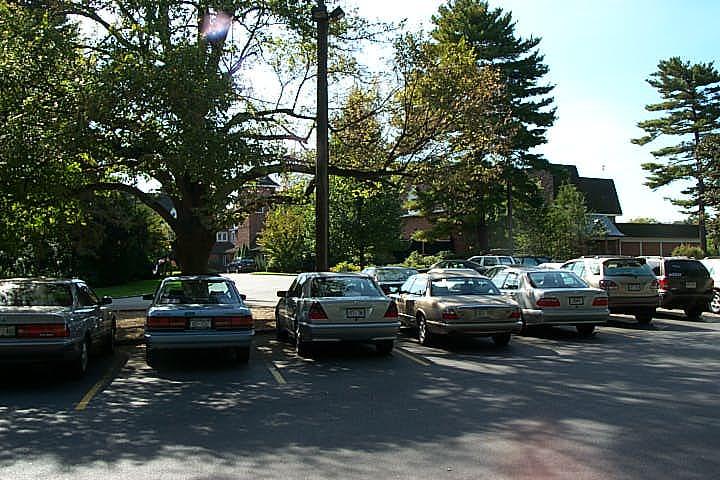An Upper Brookville mansion owned by the Russian government was closed last Friday as the United States government forced nearly three dozen diplomats to leave the country.
The last of the Russians staying in the mansion known as Norwich House left shortly before noon on Dec. 30, Elliot Conway, the Village of Upper Brookville mayor, said in an email.
The 14-acre property was one of two Russian diplomatic compounds the federal government ordered closed Thursday in retaliation for Russian cyberattacks that interfered with the U.S. presidential election. The other is located on Maryland’s Eastern Shore.
The orders caused a stir at the usually quiet estate, and at another Russian-owned property in Glen Cove that was first thought to be the one ordered shut.
Upper Brookville, a wealthy village in the Town of Oyster Bay, has “no current village-related issues with the Russians,” Conway said in the email. “They have been quiet neighbors.”
President Barack Obama’s administration said Thursday it was ousting 35 Russian diplomats and sanctioning Russian government agencies and officials as a response to the theft and release of thousands of emails from the Democratic National Committee, part of what the U.S. believes to be a state-sanctioned effort to sway the election in President-elect Donald Trump’s favor.
Russia has repeatedly rejected those claims, but Russian President Vladimir Putin said Friday that he will not expel U.S. diplomats from his country, contrary to a recommendation from his foreign minister, Sergey Lavrov.
In a statement, a U.S. State Department spokesperson confirmed the Upper Brookville property was being closed and said no one will be allowed on the premises without the department’s permission.
It was first reported Thursday that the U.S. was closing Glen Cove’s Killenworth Mansion, the other Gold Coast estate the Russians own. But Reginald Spinello, the city’s mayor, said federal officials told the city police chief that it would remain open.
The Upper Brookville estate on Mill River Road was built in 1918 and purchased by the Soviet Union in 1952, Nassau County land records show. It is valued today at $9.35 million; the house itself has nearly 19,000 square feet of living space and a pool.
A county land sale record for the Upper Brookville house bears the name of Jacob A. Malik, the Soviet ambassador to the United Nations from 1948 to 1952 and 1968 to 1976.
In a 1950 photo from the U.S. National Archives, Malik is seen in the U.N.’s former headquarters in Lake Success casting the sole vote against a U.N. Security Council resolution calling on China to withdraw troops from Korea.
With the Russians gone, Freeport-based Dover Group Hospitality Corp. said it plans to bid on the property and turn it into a catering hall with a golf course and tennis courts, the New York Daily News reported Saturday.
Dover Group also owns catering halls such as Jericho’s Milleridge Inn and Baldwin’s Coral House.
Russia purportedly used the houses as retreats for its diplomats, but U.S. officials reportedly believe it may have been used for intelligence-gathering.
Both properties are less than 10 miles from the former Roslyn Air National Guard Station, now the Park at East Hills.
It’s been rumored that the U.S. military used the base to spy on the Russian compounds. But Skip Hein, a retired airman who oversaw the communications systems at the station from 1965 to 1986, said it was not used for such surveillance.
“If anything, they [the Russians] may have tried to find out what we were doing,” Hein said.
The Soviets bought Glen Cove’s Killenworth in 1951. Built in 1912 on a property larger than 30 acres, it was the home of George duPont Pratt, son of the Standard Oil magnate Charles Pratt.
Spinello has never visited the property and does not know what goes on inside, he said.
While residents generally know of its existence, Russian officials rarely used the Glen Cove mansion in recent years, and the caretakers who lived there generally stayed “under the radar,” Spinello said.
“There’s certainly nothing adversarial,” he said. “They’re good residents. They respect everything that the city has — our facilities, the parking laws, everything else.”
There were disputes with the city in the 1970s and ’80s over whether the property should be tax exempt and whether the officials staying there could use city beaches and parks, according to news reports from the time.
When the Soviet leader Nikita Khrushchev visited the estate in 1960, residents lined the streets and threw fruit at his car, Spinello said.
Hein, who went to high school in Glen Cove, said the YMCA next to the mansion was careful about letting kids go near the fence along the mansion’s lot, thinking it was electrified.
The city’s youth were “always aware to stay away,” Hein said.
Reach reporter Noah Manskar by e-mail at nmanskar@theislandnow.com or by phone at 516.307.1045 x204. Also follow us on Twitter @noahmanskar and Facebook at facebook.com/theislandnow.



